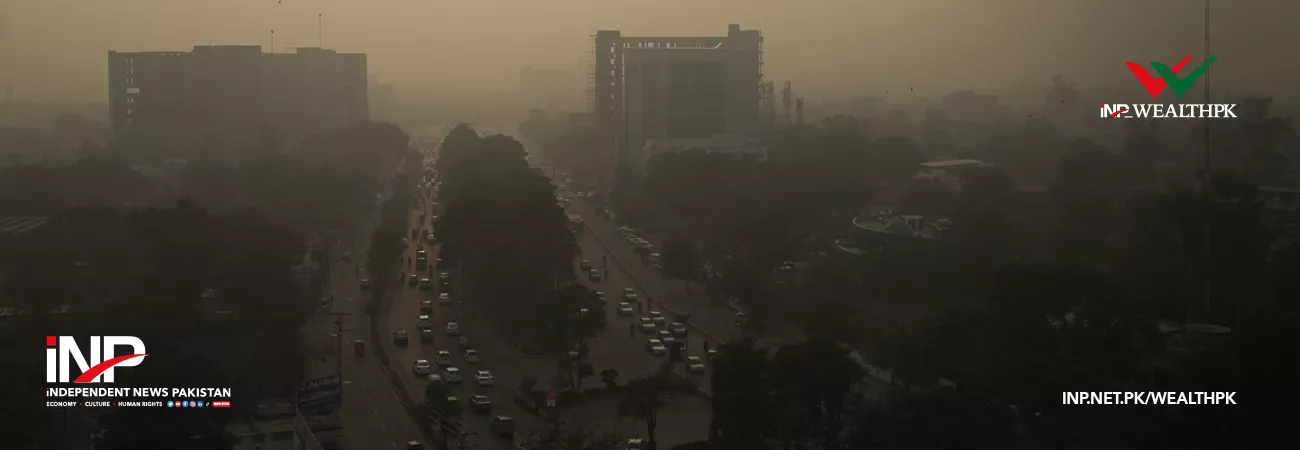INP-WealthPk
Naveed Ahmed
A strong and effective regional diplomacy can help control the factors contributing to air pollution and smog in South Asia, WealthPK reports. Air pollution has become one of the major environmental challenges in the region including Pakistan that affects the health of people besides impacting socioeconomic development.A research study, conducted recently on the causes and intensity of smog in the plain areas of Punjab, has cited an unprecedented increase in emissions of toxic gases and aerosols from vehicles, industrial units, power generation and biomass-burning activities as the main factors for impairing the air.
Dr Muhammad Fahim Khokhar, the head of environment sciences department at the Institute of Environmental Sciences and Engineering, told WealthPK that recently air pollution emerged as one of the main environmental challenges, affecting the health of people in Pakistan. Several cities in Pakistan are ranked among the most polluted ones in the region and even the world. He said that the frequent smog episodes had been affecting socioeconomic activities in the country since 2016.
The unprecedented increase in emissions of toxic gases and aerosols from vehicles, industrial units, power generation, and biomass-burning activities has impaired the air quality, resulting in various harmful effects including monetary losses. Dr Fahim said that smog episodes during October and November had become a regular phenomenon, in addition to a rise in aerosol pollution levels throughout the year. Especially extreme smog hangs over the plains of Punjab province and causes severe disruption in the socioeconomic circles during the post-monsoon and winter seasons.
The smog episodes are causing unprecedented damage to the health of local people and the environment. In the context of air quality, Pakistan has been ranked as a country with the third highest premature mortality rate associated with increased levels of PM2.5, with around 105 deaths per year. According to the World Health Organisation, outdoor air pollution is responsible for around 22,000 premature deaths and 163,432 Disability Adjusted Life Years (DALYs) in Pakistan. Dr Fahim said that regional diplomacy was required to address the local and transboundary factors responsible for smog in Pakistan.
The Indian sub-continent is home to emerging economies and 1.5 billion people. There is a dire need for active environmental diplomacy in the region. A lack of regional cooperation also hinders the collection of information on transboundary air quality and the devising of a good air quality monitoring programme. It is essential to acknowledge that air quality is not an isolated problem rather it is related to more significant environmental challenges that come with economic development including water quality and food security.Satellite data and recently installed monitors for particulate matter showed the transboundary nature of the problem.
Air quality data for Pakistan is minimal as compared to India, which has an active air quality monitoring programme. This imbalance highlights the importance of dialogue between the two countries which need to progress on shared problems related to regional air quality. Organisations such as SAARC, ICIMOD and others can play a critical role in engaging all its member countries to join hands and tackle environmental issues.“There is no easy way out of this situation. All countries in the region are in a precarious situation, which calls for regional cooperation and exchange of knowledge and experiences. There is no choice but to join hands and address these mutual issues,” Dr Fahim told WealthPK.
Credit : Independent News Pakistan-WealthPk













